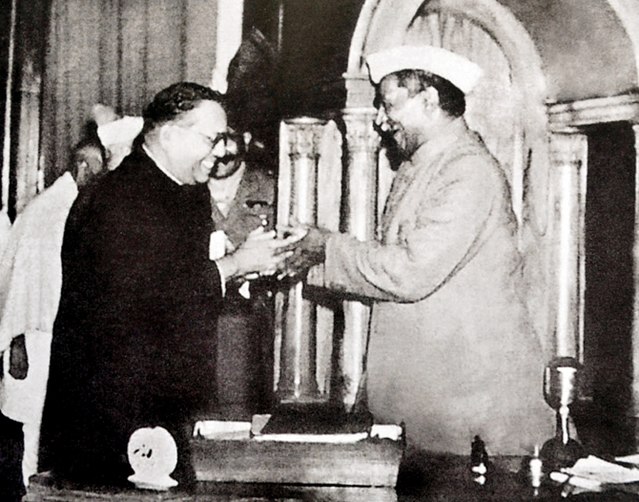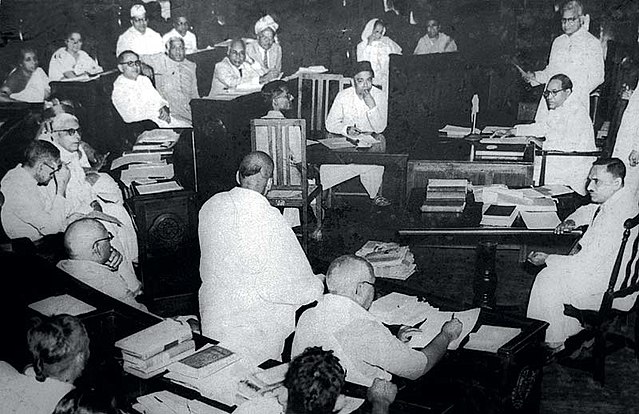Bhimrao Ramji Ambedkar was an Indian jurist, economist, social reformer and political leader who headed the committee drafting the Constitution of India from the Constituent Assembly debates, served as Law and Justice minister in the first cabinet of Jawaharlal Nehru, and inspired the Dalit Buddhist movement after renouncing Hinduism.
Ambedkar in the 1950s
Ambedkar at Columbia University, c. 1916
Ambedkar (In center line, first from right) with his professors and friends from the London School of Economics (1916–17)
Ambedkar as a barrister in 1922
The Constitution of India is the supreme law of India. The document lays down the framework that demarcates fundamental political code, structure, procedures, powers, and duties of government institutions and sets out fundamental rights, directive principles, and the duties of citizens, based on the proposal suggested by M. N. Roy. It is the longest written national constitution in the world.
Original text of the preamble
B. R. Ambedkar and Constitution of India on a 2015 postage stamp of India
Babasaheb Ambedkar, chairman of the drafting committee, presenting the final draft of the Indian constitution to Constituent Assembly president Rajendra Prasad on 25 November 1949
1950 Constituent Assembly meeting








